Table of Contents
The UGC NET Library Science Syllabus 2025 is a complete guide for candidates aiming to qualify for the National Eligibility Test in this domain. It outlines the key topics and subtopics essential for Paper II, enabling candidates to focus their preparation effectively. From information sources to knowledge organization, the syllabus covers critical aspects of Library Science. Candidates can download the UGC NET Library Science Syllabus 2025 PDF to access the complete topic list and streamline their preparation for success.
UGC NET Library Science Syllabus: Overview
The UGC NET Library Science Exam is conducted by NTA on behalf of UGC NET. The NET Library Science Exam is conducted online at the national level. For more information, the candidates need to refer to the following table.
| UGC NET Library Science Syllabus | |
| Name of the Exam | National Eligibility Test (NET) |
| Conducting Body | National Testing Agency (NTA) |
| Exam Conducted in A Year | Twice a Year |
| Mode of Examination | Online |
| Type of Questions | Multiple Choice Questions (MCQs) |
| Number of Papers |
|
| Number of Questions | 150 |
| Time Duration | 3 hours |
| Negative Marking | No |
UGC NET Library Science Exam Pattern
The candidates are highly recommended to refer to the NET Library Science Exam Pattern mandatorily. This will help them understand the nuances and intricacies of the UGC NET Syllabus for Library Science Exam Pattern in detail. The candidates have to appear for Paper I (General Section)and Paper II (Subject Concerned).
| UGC NET Library Science Exam Pattern | |
| Correct Answer | 2 Marks |
| Incorrect/ Wrong Answer | No negative Marking |
| Unattempted Questions | NIL |
| Number of Questions | 150 Questions |
| Total Number of Marks | 300 Marks |
| Papers | Paper I and Paper II |
| Exam Duration | 3 Hours |
UGC NET Library Science Marks Distribution
The candidates have to answer 150 questions in 3 hours. Each question is worth 2 marks and there is no negative marking. There are two papers- Paper I (50 Questions) and Paper II (100 Questions). The questions are objective type multiple choice in nature. Candidates must check out the following table for more details.
| UGC NET Library Science Marks Distribution | |||
| Paper | Marks | Number of Questions (All Are Compulsory) | Duration of Exam |
| Paper I | 100 | 50 | 03 hours |
| Paper II | 200 | 100 | |
UGC NET Library Science Syllabus
Here is the detailed outline of the UGC NET Library Science Syllabus. The candidates must check out the following table for more detailed information.
| UGC NET Library Science Syllabus | |
| Units | Topics |
| Unit – I |
|
| Unit – II |
|
| Unit – III |
|
| Unit – IV |
|
| Unit – V |
|
| Unit – VI |
|
| Unit – VII |
|
| Unit – VIII |
|
| Unit – IX |
|
| Unit –X |
|
UGC NET Library Science Syllabus PDF
Candidates must access the UGC NET Library Science Syllabus PDF for a detailed understanding of the intricacies and finer points of the syllabus. All the topics in each Unit are mentioned in depth.
| UGC NET Library Science Syllabus PDF | |
| UGC NET Library Science Syllabus | PDF LINK |
| UGC NET Library Science Syllabus PDF Hindi | Click Here |
| UGC NET Library Science Syllabus PDF English | Click Here |
UGC NET Library Science Syllabus
The UGC NET Library Science syllabus encompasses a wide range of topics that aim to provide a comprehensive understanding of the field. It begins with an overview of Library and Information Science as a discipline, including the objectives and functions of libraries and their significance as social institutions. The syllabus also covers important aspects such as library legislation in India, emphasizing the legal framework governing libraries.
Furthermore, it explores the concepts of information, information science, and their role in shaping the information society. By studying this syllabus, candidates gain a deep understanding of the theoretical foundations and practical aspects of library science, enabling them to excel in their academic pursuits and professional endeavours.
| UGC NET Related Articles | |
| UGC NET Notification 2025 | UGC NET Application Form 2025 |
| UGC NET Previous Year Question Paper | |

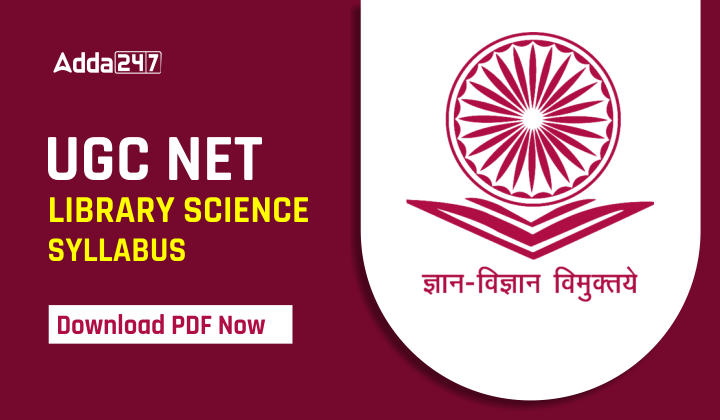
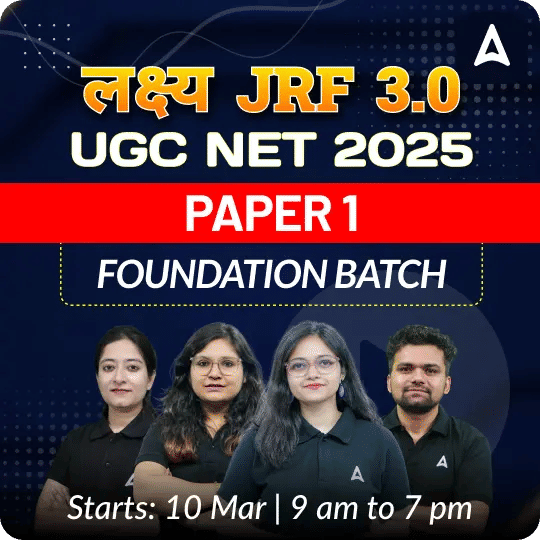

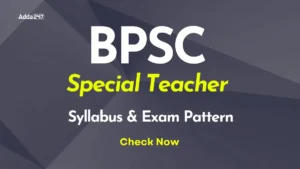 BPSC Special Teacher Syllabus and Exam P...
BPSC Special Teacher Syllabus and Exam P...
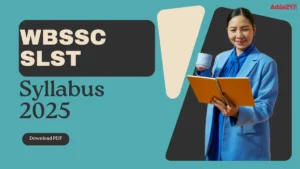 WBSSC SLST Syllabus 2025 for Assistant T...
WBSSC SLST Syllabus 2025 for Assistant T...
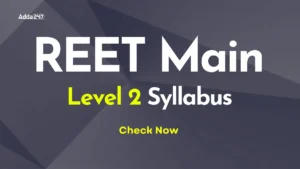 REET Mains Syllabus Level 2, Download Su...
REET Mains Syllabus Level 2, Download Su...




